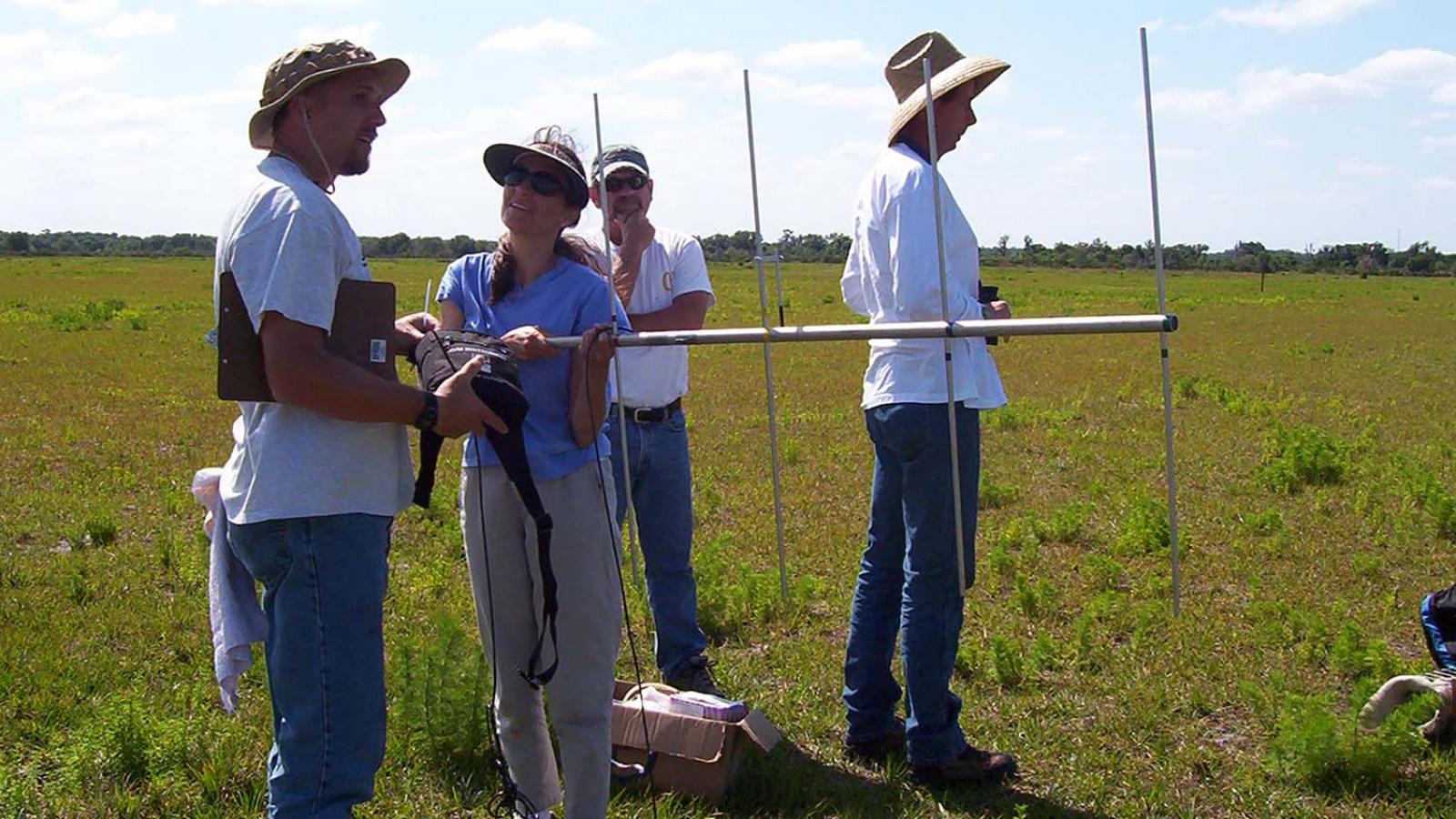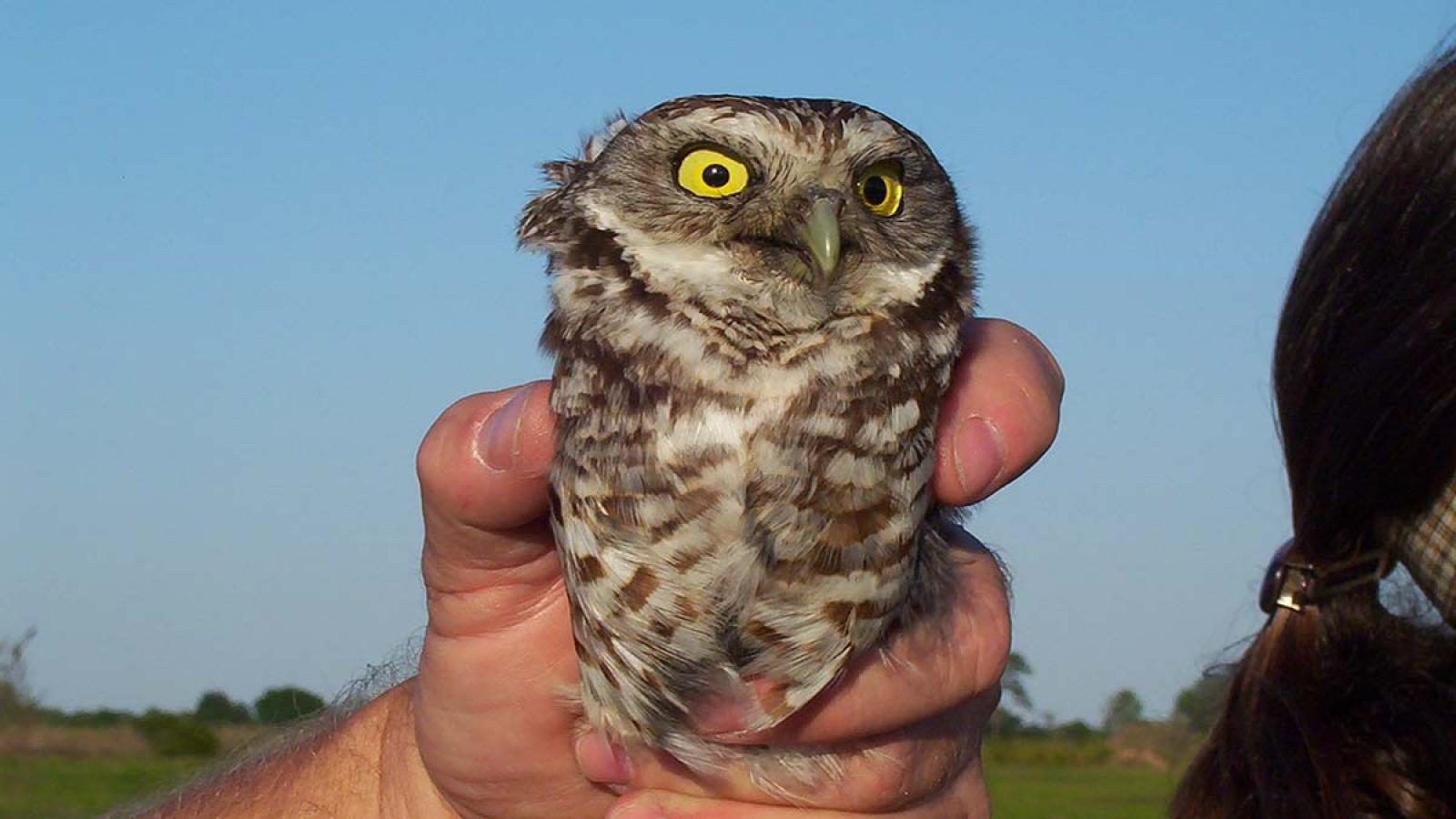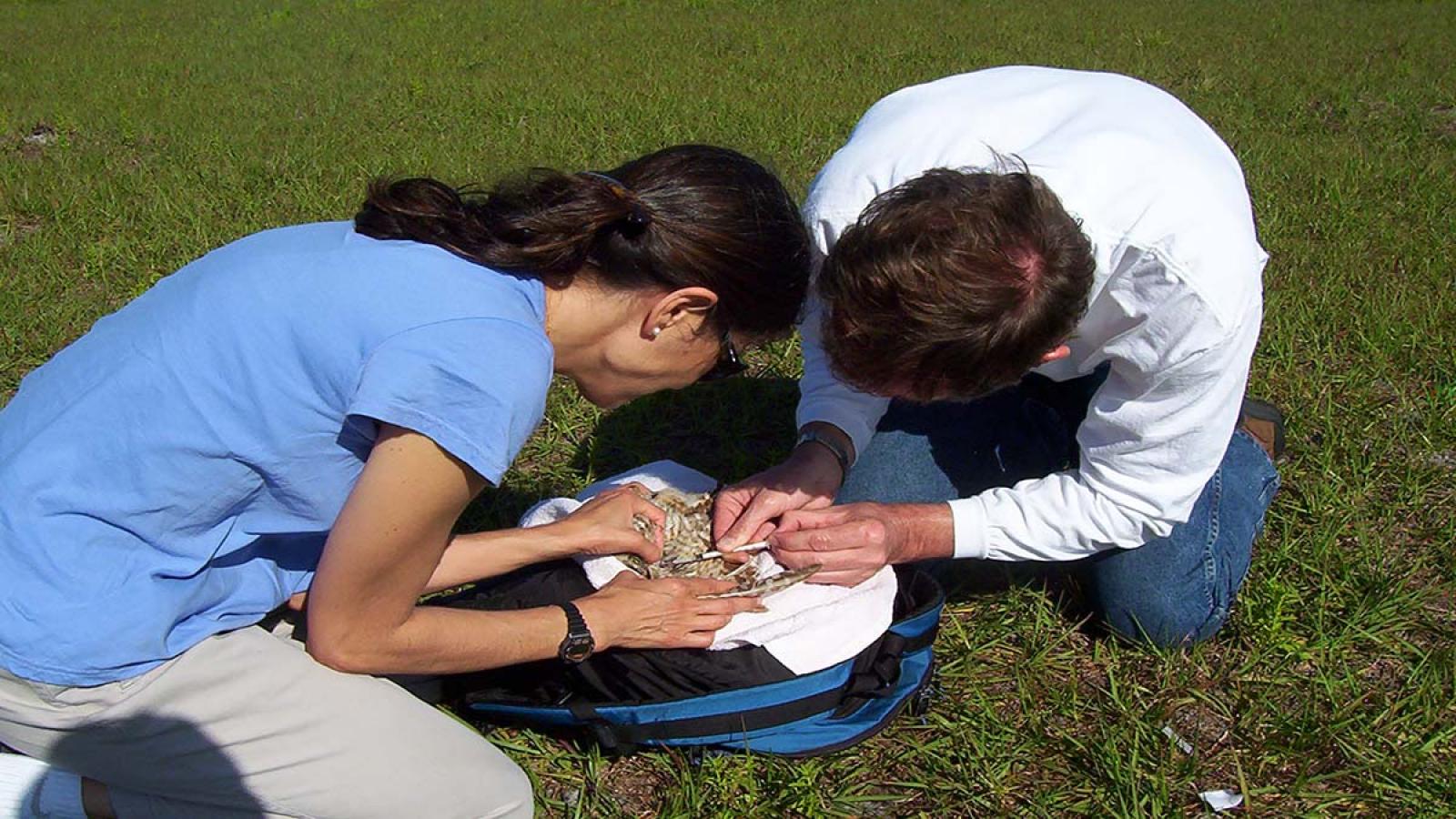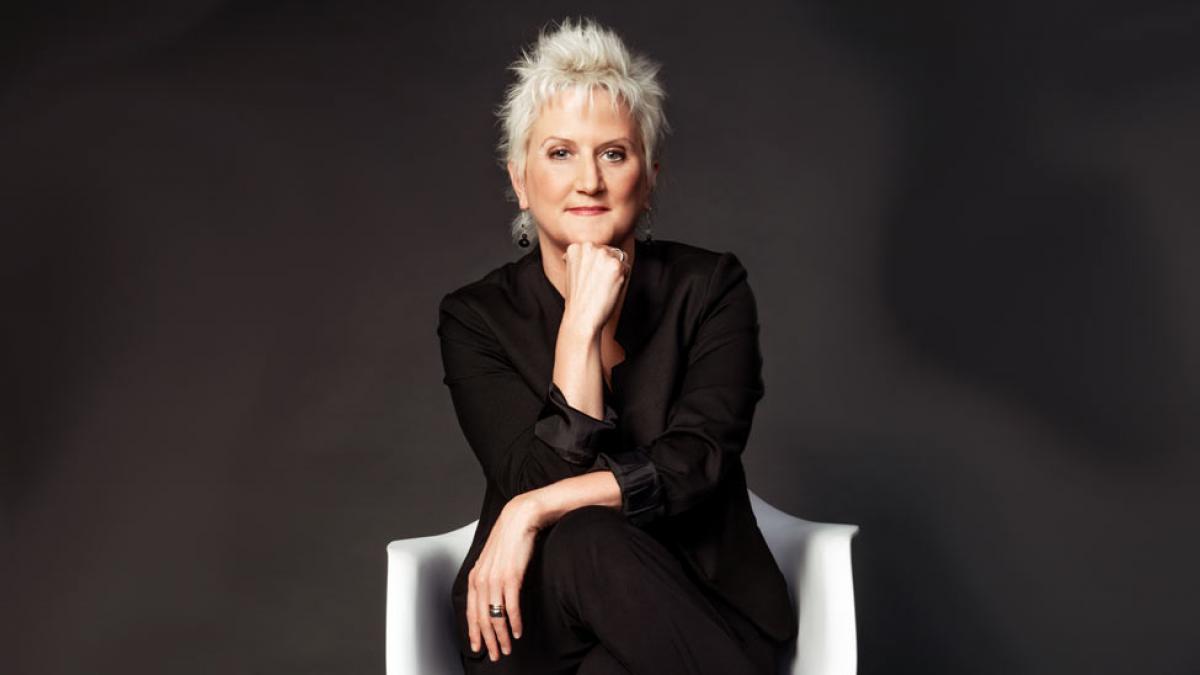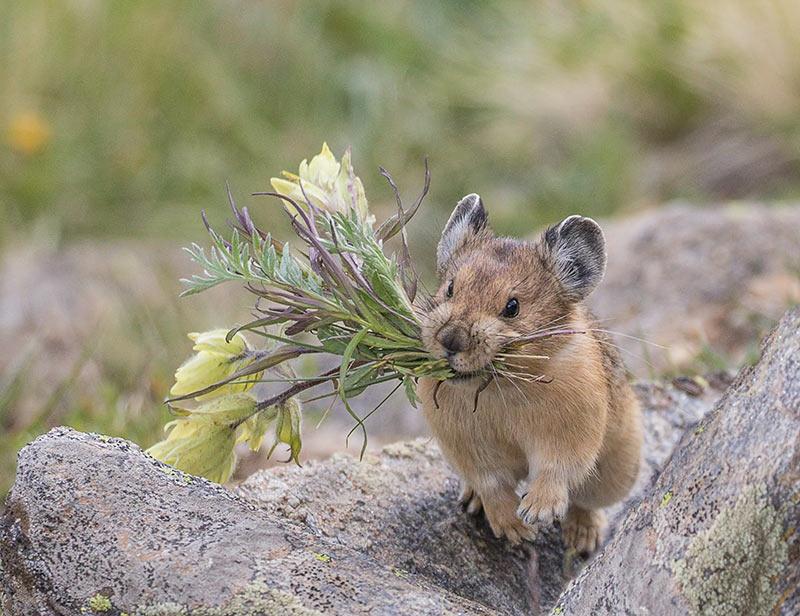
Preserving Populations, Preparing Scientists
Dyson Biology Professor Melissa Grigione, PhD, has spent her career traveling all around the world to better understand a wide range of animal populations. She's now passing on what she's learned to the next generation.
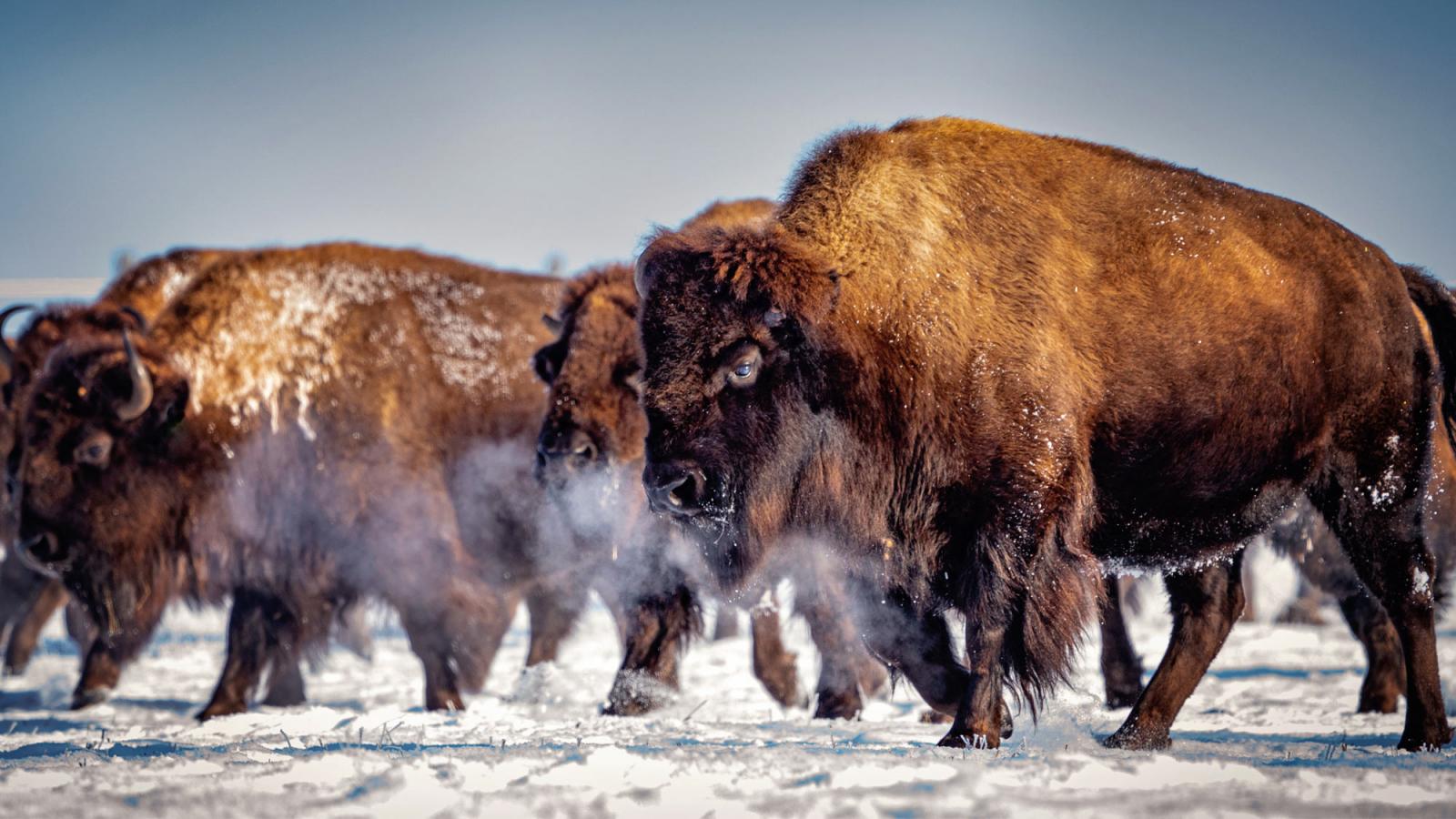
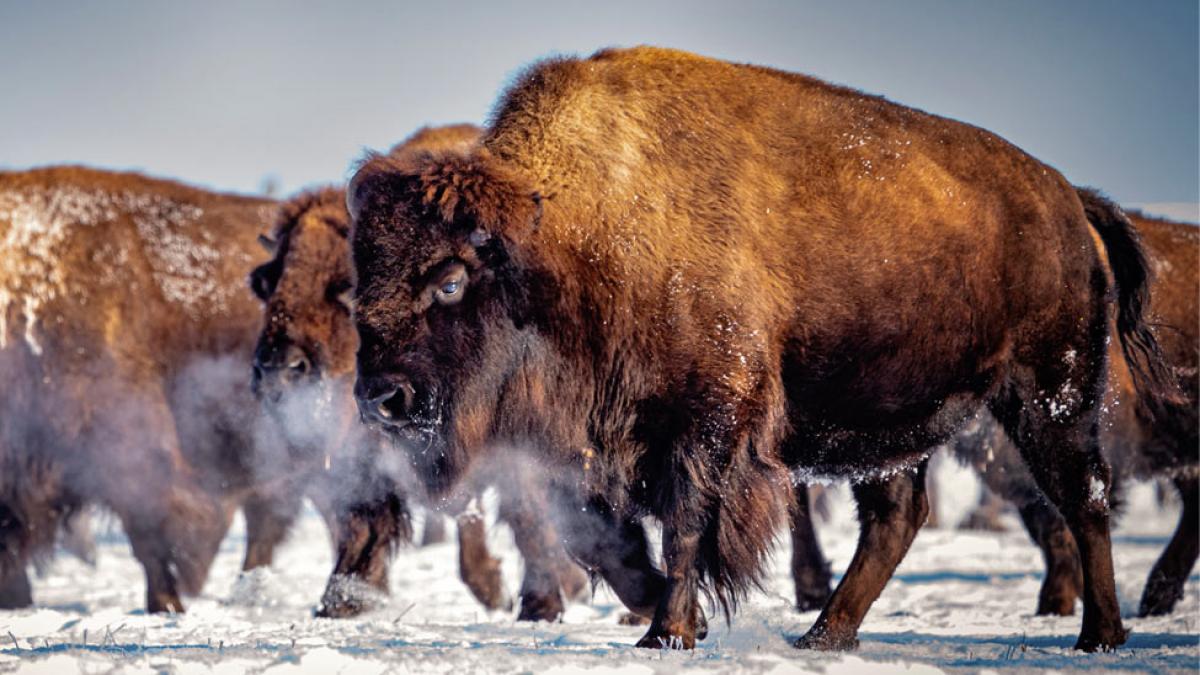
When you think of a scientist conducting research, your mind might immediately visualize a bustling lab, full of test tubes and beakers. For Dyson’s Melissa Grigione, that lab is oftentimes mother nature. Over the course of her career, Grigione has traveled literally all over the world—from Cameroon, to Patagonia to countless destinations in between—to better understand the complex relationships between animals and surrounding ecosystems.
Grigione specializes in what’s called mammalian spatial ecology, which can be defined as how ecological and man-made elements impact the development and propagation of animal species. She uses sophisticated technological techniques such as Geographic Information Systems (GIS) and remote sensing technology to better understand populations, and how they are impacted by what’s happening around them. She is highly focused on conservation biology, as she’s dedicated much of her life to understanding species whose way of life have been altered by man-made and environmental changes to existing ecosystems.
Take, for example, the bison—an iconic American species that Grigione and her husband have been researching for nearly a dozen years. Through studying the effects of human hunting norms, she has found that the species’ ability to propagate effectively has been reduced.
“We were looking at the effects of hunting on mating behavior,” said Grigione. "The large males that are hunted may be showing signs of reduced and/or altered vocalization during mating. These changes in vocalization may have profound effects on the populations, its reproductive biology, and genetic structure."
This particular project began quite modestly, on the Pine Ridge Indian Reservation in Badlands National Park in South Dakota. Now, it’s growing rapidly—Grigione has been conducting similar research in Canada, as well as a lot of private land in the western United States to better understand larger trends amongst diverse populations of this species.
“I’ve been all around the world studying animals in my life, but the thing I really love most about being at Pace and my career right now is enriching the minds of our students,” said Grigione.
Grigione is also focusing her attention to a species called the pika—a small, rabbit-like species that can be found in high-elevation areas around the globe. By studying pika populations in the Rocky Mountains of Idaho, Grigione is breaking new ground.
“They’ve never been studied in Idaho, and I’d like to study the effects of a changing climate on these animals,” said Grigione. “They live at very high elevations and there’s nowhere else for them to go if temperatures continue to increase. If they are affected, their populations can just start blinking out.”

In addition to a few other ongoing projects—including, but not limited to, studying burrowing owls in the grasslands of Florida and repopulating jaguar populations in Arizona—Grigione is focused on the classroom. As a faculty member at Pace, Grigione has taken great pride in training the next generation of scientists. Over the course of her career, she’s seen students evolve from learning the ropes during graduate assistantships to holding major roles and making significant impacts in the professional world. She credits the larger educational philosophy at Pace to helping prepare scientists; as oftentimes today, it’s not just enough to solely focus on the hard science.
“The reason why I love Pace, we’re training our students not only to do science, but how to understand policy and how to communicate.”
While Grigione has accomplished quite a lot over the course of her career, she views it as her mission to ensure the student-to-scientist pipeline remains robust. With all the advents of 21st century technology, basic understanding of the natural world can often take a backseat. Yet, as Grigione notes, training competent and dedicated conservation biologists for the future—many of whom will be faced with ever-complex challenges due to a changing climate, human population alterations, and much more—is arguably more important than ever.
“I’ve been all around the world studying animals in my life, but the thing I really love most about being at Pace and my career right now is enriching the minds of our students,” said Grigione. “Students don’t always have a sense of the natural world—if I can spark a little of light, bring some stories into my classroom and really turn on that switch to appreciate and understand the importance of nature, I've done my job. This is what I love doing.”
Originally published October 15, 2021
More from Pace Magazine
The Lubin Center for Sustainable Business is equipping students, faculty, professionals, and communities with education, research, and the job skills necessary for maintaining sustainable business models in the 21st century.
Rhonda Miller, head of Pace’s BFA in Commercial Dance, wanted to build a different kind of dance program. “I wanted it to be relevant and useful—to include all forms of dance and the practical business skills dancers need but so often don’t have. We’re giving students the tools they need to navigate show business and make a living in dance.”
Creativity. Know-how. Entrepreneurial spirit. That's what it takes launch your own startup. Just ask the founders of Wepptek.
Elisabeth Haub School of Law Professor Craig Hart and Alumnus Basil Seggos Rank Among the 2021 Energy & Environment Power 100
Professor Craig Hart, Executive Director of the Pace Energy and Climate Center at the Elisabeth Haub School of Law at Pace University, was named to the “2021 Energy & Environment Power 100” list published by City & State New York magazine. Distinguished Haub Law alumnus Basil Seggos ’01, Commissioner, State Department of Environmental Conservation, received the #1 ranking for his leadership in New York State’s climate change law.
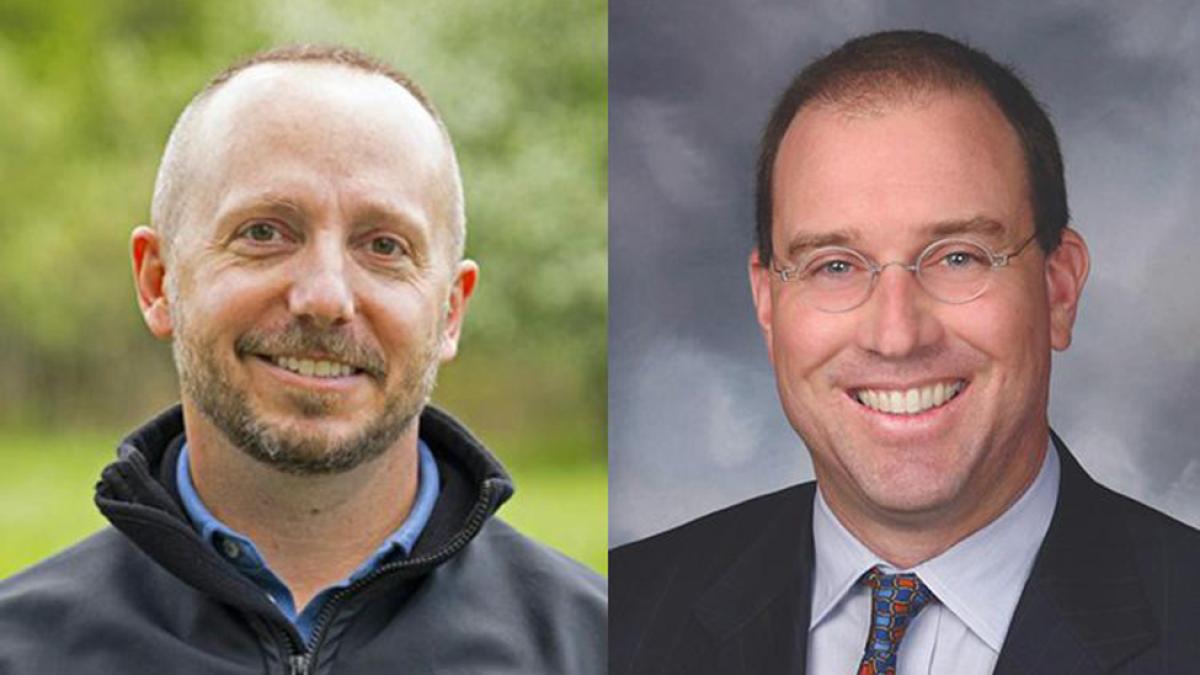
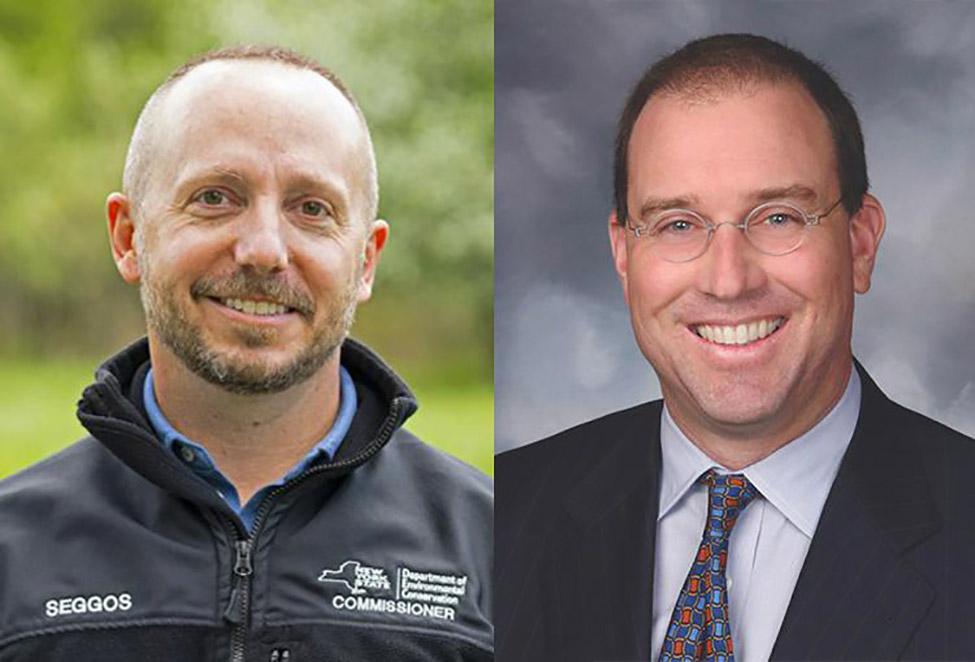
Professor Craig Hart, Executive Director of the Pace Energy and Climate Center at the Elisabeth Haub School of Law at Pace University, was named to the “2021 Energy & Environment Power 100” list published by City & State New York magazine. Professor Hart was ranked #65 on the prestigious list which includes public officials, energy executives, environmentalists, activists, academics and others who are driving the debate on climate change and reinventing how New Yorkers get their power.
Distinguished Haub Law alumnus Basil Seggos ’01, Commissioner, State Department of Environmental Conservation, received the #1 ranking for his leadership in New York State’s climate change law. Additionally, former Haub Law Visiting Professor Judith Enck, Founder and President of Beyond Plastics and former EPA Region 2 Administrator, ranked #40 along with Fred Zalcman at #16, who served as Pace Energy & Climate Center’s Executive Director from 2001 – 2007. Haub Law also acknowledges litigation partners Kim Fraczek, Director of SANE Energy, who ranked #83 and Bob Howarth, Professor of Ecology and Environmental Biology at Cornell University, who ranked #64.
“We are so proud of the important work that both Craig and Basil are doing to address the growing threat of climate change in New York and beyond and congratulate them on this recognition,” said Dean Horace E. Anderson Jr., Dean of the Law School. “As the #1 ranked environmental law program, Haub Law remains committed to advancing climate change law and policies that enact a global response and salutes our past and present faculty, alumni and colleagues for their bold leadership.”
#65 Craig Hart
Executive Director, Pace Energy and Climate Center
Pace Law School brought Craig Hart on to run the school’s energy and climate center two years ago. Hart, who has advised governments on policies regarding renewables, grid modernization and financing infrastructure, has supported clean energy initiatives in the American Jobs Plan and urged private-sector employers to reorient toward sustainability. He also led Pace’s partnership with the Westchester County Association to launch a clean energy portal to help businesses find government initiatives allowing them to lower their carbon emissions.
#1 Basil Seggos
Commissioner, State Department of Environmental Conservation
Not only did Basil Seggos stay on as commissioner of the state Department of Environmental Conservation during the transition from the Cuomo regime to the Hochul administration, he turned heads in October with his agency’s decision to block permits for proposed repowering projects in Queens and upstate New York. This was done on the grounds that investing in natural gas infrastructure is contrary to the state’s Climate Leadership and Community Protection Act. Seggos, who has led DEC since 2015, also co-chairs the New York State Climate Action Council, which is tasked with implementing New York’s ambitious climate change law.
View the full City & State 2021 Energy & Environment Power 100 list
Gender bias, bred in the home: Many NYC immigrant homes indoctrinate boys and girls in sexist practices
A School of Education Pace student, Subrina Ally, takes on cultural gender bias in a first-person essay in The New York Daily News.
Why Maralee Nichols Wants Tristan Thompson Child Support In California
Haub Law Professor and Matrimonial attorney Morghan Leia Richardson with the law firm Davidoff Hutcher & Citron, LLP in New York City told HollywoodLife EXCLUSIVELY that it all comes down to money! “California tends to have the highest ‘rate’ of child support across the country. It has the broadest definition of ‘income’ for determining support.
Kim Kardashian 'does not need' Kanye West to finalize divorce plea
Haub Law Professor and Legal expert Morghan Leia Richardson, with the Davidoff Hutcher & Citron LLP in New York City, recently sat down with Hollywood Life and explained the internal workings of a family court.
Pace Partners with The Community Fund
The Community Fund of Bronxville, Eastchester and Tuckahoe is partnering with Pace University to conduct a community needs assessment of programs and services available to residents.
Pace Launches Esports
Pace University is launching its official Esports program, featuring the development of a dedicated esports and gaming center on its New York City campus
Pace University Receives NYS Economic State Development Grants
Pace University has been awarded two grants from New York State to upgrade science laboratory space and purchase equipment to help address a critical need for more clinical lab technicians and nurses in the region.
Environmental Law Professors Suggest Disruptions to Legal System Necessary to Attain Climate Innovation
Lissa Griffin, Professor of Law and Ian J. Yankwitt Faculty Scholar at Pace University Elisabeth Haub School of Law.
Katrina F. Kuh, Haub Distinguished Professor of Environmental Law at the Pace University Elisabeth Haub School of Law.
Kim Kardashian Can Finalize Divorce 'Without' Kanye's Cooperation
Haub Law Professor Morghan Leia Richardson, Esq., the Matrimonial Partner with Davidoff Hutcher & Citron LLP in New York City, spoke to Hollywood Life about Kim’s requests and explained how she can push the divorce through “with or without” her ex’s cooperation.
